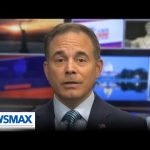The Trump administration’s proposed expansion of travel restrictions to 48 countries threatens to severely impact U.S. tourism revenue during the 2026 World Cup. Host cities anticipating economic windfalls from international visitors now face potential losses as nearly a quarter of the world’s nations could face entry restrictions.
The existing policy bars immigrants and temporary visitors from 12 countries while imposing partial restrictions on 7 others like Venezuela and Turkmenistan. These measures already affect thousands seeking asylum or family reunification, though World Cup athletes and staff receive exemptions.
A State Department memo identifies 36 additional countries for potential bans if they fail to meet U.S. security requirements within 60 days. This list includes major African nations like Nigeria and Ghana, along with Caribbean states such as Antigua and Barbuda. Combined with existing restrictions, nearly 50 countries representing 25% of global GDP could face entry limits by fall 2025.
Host cities like Los Angeles and Miami planned to fill 40-50% of stadium seats with international fans. With visa-free nations like Dominica and São Tomé and Príncipe now targeted, travelers from these regions may cancel trips entirely due to perceived hostility. The Colorado attack cited in the ban’s justification involved a visa overstay, raising concerns about broader tourist visa crackdowns.
While the administration emphasizes vetting improvements, tourism analysts warn the bans could cost host cities $2-4 billion in lost spending. Hotel chains with pre-booked World Cup blocks report growing cancellation requests from global tour groups. Though players remain exempt, family members and fans from restricted nations face uncertainty six months before qualifiers begin.
This collision of security policy and mega-event planning reveals deeper tensions about America’s openness to global visitors. With the travel industry lobbying for World Cup-specific waivers, the administration faces pressure to balance border controls against the reputational and economic stakes of hosting the world’s largest sporting event.




